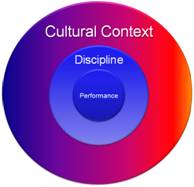This set of articles covers a whole range of performance management topics. If you want to understand performance management, its language, the various types, and to diagnose problems you may be encountering, you are in the right place. This is our “Performance Management Zone”
These articles are about the choices we make about how we manage performance and how to improve performance. Performance Management is not one thing: it is a system of components that interact in our organisations. There is the discpline and the culture of performance. There are differing perspectives on performance management when looked at through different lenses. The paradigms we operate under, and our beliefs about how we should manage, all influence our choice about how we manage performance in our organisations.

Contents: Performance Management topics and articles
First we explore what we hear from clients, the typical presenting problems and the common underlying reasons for these problems. We have listed nine underlying causes of performance management problems in organisations: These are explained and analysed below:
- The language of performance management is confusing: It contains too much jargon, that is not clearly shared and understood.
- Performance management is not one thing. There are various types of Performance Management and the various types interact.
- Performance Management is seen as a technical tool or solution. It is not. Performance Management is really a social tool.
- The Discipline of Performance needs to be applied.
- Just as important, if not more so, is the Culture of Performance.
- One size or style does not fit all. There are many styles and approaches to managing performance.
- The design and implementation of performance management approaches is often poor. Often, performance management implementations lack appropriate management of change.
- Performance management does not exist. (It is really a part of something bigger, and more important).
- The paradigms of performance management are changing – so how we manage out peoples’ and our organisation’s performance should also change.
Performance Management: Understanding the presenting problems and their underlying causes
The presenting problems: Clients often ask us to help improve, modernise and solve problems they are having with performance management. Often they talk about their presenting problems, the ones that are most apparent. However, these are often not the underlying or root causes of the problems. Typical presenting problems include:

- They have not implemented what we want. We talk different language. As a result performance management is not working. (See Language of performance)
- The scorecards are not being used. They do not inform decisions. We seem to be measuring the wrong things.
- We have dysfunctional behaviour. We get pockets of performance… (See Culture of performance)
- Our scorecards are not telling us where things are going wrong. They tell us afterwards. They do not predict or inform.
- The information is too detailed. It is not strategic enough. We can’t see the big picture. We can’t see wood for trees.
- We are having problem setting targets. They need to be more meaningful and achieved.
- The Board want assurance we will continue to be successful (and so do I, as an Executive or Manager).
The deeper root causes: The cause of these presenting problems are the deeper, underlying problems: the root causes of problems managing performance. So, in this zone, we give you a guide to how to understand and address these underlying causes, through a whole collection of articles. The articles are chosen to help you think more deeply about why you may be having issues with any specific aspect of the management of performance.
Issue 1: The Language of Performance Management is ambiguous and confusing – Plain English please

The Problem: Our language about performance management contains so much jargon, it is actually impoverished. As a result we miss the subtle and important parts. This is the root cause of many performance management problems. One of the first things we do with clients is understand how they use the words, develop clear definitions, and from then on, being really clear with our language. That way we all know what each other means.
Articles that will help: to clarify your language around performance management, have a read of these articles. Warning: these articles use plain English!
- Getting some basic definitions and language clear
- What is the difference between a measure and an indicator?(Lots)
- What is the difference between a scorecard and a dashboard?
- How many types of Balanced scorecard are there?
- What is a leading indicator and is there more than one type of leading indicator (Answer – Yes – here are ten different types of leading indicator).
- When we set a target is it an expectation, an ambition or a goal?
- Clearing up some ambiguous terms
- The language of nasty performance management diseases:
- What are “Measure mania“, the “tyranny of targets” and “feeding the beast”, “Obsessive compulsive target setters“
The question: Are you all talking the same language and using words that have the same meaning to each other?
Issue 2: There are various types of Performance Management, and they interact.
There are two underlying problems here: There are many different types of performance management. They operate and interact as a set.

Problem 1: Our organisations have many different types of performance management system in an organisation. We need to ensure we are talking about the same type of performance management system and the same parts of that overall system, e.g. individual, organisation, operational, strategic, governance, compliance, decision making etc.. (System in this context is not technology, but the whole approach).
Problem 2 : The various different types of performance management system interact as a complex set. Before we change anything, it is vital we understand the complexity of the whole system and how they interact. A failure to consider the interaction will waste time and money on implementation. It will cause even more chaos when in use.
Articles that will help with problem (1) the variety of types of Performance management
- An introduction to the varieties and types of performance management system and their contrasting roles in our organisations
- Different types or generations of balanced scorecard address different management problems and needs. Make sure you choose the appropriate type
- Strategic balanced scorecard vs operational balanced scorecards: What is the difference?
- Perspectives on performance management:
- Strategic management vs operational management: strategic learning
- The Board Governance view: Introducing the Board learning model
- The middle management view: Types of information flow
- The stages of decision view: Information needs at different stages in the decision process
Articles that will help with problem (2) how the various types of performance management system interact:
- Organisational agility requires two preceding capabilities
- Helpfully stolen accountability: a lesson in delegation, accountability and decision making control
- Integrating rolling and continuous budgeting into your strategy process
Questions to think about:
- Are you talking about the same type and aspect of performance management?
- Are you considering how these types interact with one another? If you change one part, what effect will it have on others and others have on it?
Our clients say:
“I can’t think of another example of a project where there has been such sign-up to the approach from every directorate.
We have not embedded things in the same way before.”
Peterborough City Council: Strategy and Strategic Balanced Scorecard project
“The reason we like working with you is that you are sympathetic to our style of thinking and working, and you adapt to it.”
Dr Astrid Bonfield, Chief Executive Diana Princess of Wales Memorial Fund. Client for Strategic Balanced Scorecard and Future Thinking.
Issue 3: We treat Performance Management as a technical tool: It is really a set of social tools

Problem: Too often performance management is treated as a technical system; the focus is on the software, or the process. In reality, it is about the quality of conversation, peoples’ understanding and decision making. It is about the connections between people and the quality of analysis and thinking. Make good decisions, execute them well (the performance management piece) and learn quickly from them.
Articles that will help:
- The balanced scorecard is not a technical tool – it is a social tool
- Performance management is about the Quality of conversation
- Quality of thinking: Thinking fast and slow
- Performance management is actually, just a part of a wider conversation and decision process
- Encourage dissent, because quick consensus leads to bad decisions
Questions to think about:
- Are we creating the right conversations about performance?
- Are we creating the right frame for our people to perform?
Issue 4: Ensuring we apply the discipline of performance.

Problem: We need sound data to make decisions. We need to be disciplined in how we execute those decisions and learn from their impact (or not). The discipline of performance is about doing the basics well. Do we have the information? Is there one version of the truth? Are we taking decisions based upon that information? Do we wait for decisions to have an effect before we act again? Are we learning from what we see and the feedback we get? Are measures and indicators being used appropriately. Do we set ambition, expectation and targets well.
Your discipline of performance sits within a culture of performance. Part of the question, do people have the discipline, is determine by the culture of performance you create.
Articles that help:
- Frankly there are hundreds of articles on the web about the discipline of performance, one version of the truth, setting measures etc.
Questions to ponder:
- Do we have a discipline of performance?
- Do we enforce that discipline of performance?
Issue 5: Our culture of performance is just as important, but it gets ignored or assumed

Culture of performance Problem 1: We create a culture of performance in our organisations, whether intentionally, or not. That culture of performance dramatically changes how people are managed, work and behave.
Performance Culture Problem 2: There are lots of ways to manage people and performance. One size or style does not fit all. You have a choice
Often, the performance management systems assume a culture (eg “measures motivate”, “what gets measured gets manage”). This may not always be desired or intended. However there are other ways to design, create and improve the culture of performance.
Sometimes, we inherit a culture of performance from a previous manager, owner, director. That might not be what we want. However, that culture and set of behaviours persist. The challenge is twofold: 1) to identify that the old culture prevails and 2) to change that and help people learn and adapt to a new culture and way of working.
Articles that help: Warning. These articles may challenge how you think about how you manage performance and your people!
- What do we mean by a culture of performance? An ideal we should strive for.
- How measurement and target cultures are affected by different cultures of performance (How a culture of learning changes everything)
- On trusting our people:
- A simple dichotomy: Do we treat our people as “employees in an organisation” or Human beings in a business”?
- Do you trust your staff to develop their own measures? If not, why not?
- Performance management systems and culture (Aimed at Housing Associations, but applicable to all)
- Measurement, targets and dysfunctional behaviour
- How incentives and targets affects measures and performance
- Avoiding dysfunctional behaviour due to measures
- Dysfunctional behaviour due to single point targets (a story from the NHS) and how to avoid dysfunction & gaming the system.
Questions to consider:
- Is the culture of of performance you have, the culture you want?
- Is that culture consistent across the organisation?
- Have you accidentally adopted the culture from another organisation, or way of thinking?
- Are you accidentally operating a culture of performance established by an manager who left ages ago?
- Are the underlying philosophies of your performance management tools and approach consistent with each other, and congruent with how you want to manage?
Our clients say:
“I can’t think of another example of a project where there has been such sign-up to the approach from every directorate.
We have not embedded things in the same way before.”
Peterborough City Council: Strategy and Strategic Balanced Scorecard project
“We knew we had to focus on the big issues. We now are better, as a team, addressing strategic issues, sharing ownership of the big issues and taking corporate responsibility.“
Peterborough City Council, Strategy and Strategic Balanced Scorecard project
“It has helped us as Directors work far more closely together, where we would not have normally. We can now lead from the top and are seen to speak in a single voice.”
“The approach has created a much greater sense of unity between the departments. It’s the combination that matters. We realise we are all culpable, together.”
Issue 6: There are lots of ways to manage performance – one default style does not fit all organisations or managers

To get the best from our people, perhaps we need to thinking about the alternative ways we could manage their performance
Problem: Just as different managers have differing styles, so do different organisations. However, the assumption is that a style of performance management suits all. This is not the case. The more organisations I meet and work with, the more I see different executives and managers creating an environment for performance in different ways. Some are own to the personalities of the owners and managers. Others are down to the sectors and industries. Some managers are simply innovators and mavericks who believe in their people are want them to enjoy work, feel it has meaning as well as purpose, and to succeed.
Articles that help:
- Is “How we manage” missing from our strategic review?
- Organisations do not exists: think social systems
- The Chief Executive and the Light bulb: Thinking about how we think about our people and how we manage
- The importance of accountability in the culture of performance
- It is about the quality of conversation
- A different way to look at how we manage: Upside down organisational charts
- Are we missing what really makes the difference? The Dark Matter of organisational performance.
Questions to ponder:
- Have you accidentally adopted the culture from another organisation, or way of thinking?
- Are you accidentally operating a culture of performance established by an manager who left ages ago?
- Are the underlying philosophies of your performance management tools and approach consistent with each other, and congruent with how you want to manage?
Our clients say:
“I can’t think of another example of a project where there has been such sign-up to the approach from every directorate.
We have not embedded things in the same way before.”
Peterborough City Council: Strategy and Strategic Balanced Scorecard project
“This project has been remarkable. There has been so little resistance and so much take up so quickly. We have not encountered that before.”
Steve Inch, Director, Dimensions
Client for Strategic Balanced Scorecard at Board and regional level
Issue 7: The design and implementation of performance management systems often misses important aspects.

The problem: Sometimes the problem lies in how we design our performance management systems. For instance, what gets measured gets managed, can end up as managing only that which you think you can measure. Many scorecards fail to inform any decisions or actions. Outcome thinking is required by regulators but applied simplistically in the public sector. Strategic balanced scorecards use objectives, strategic themes and decision or performance areas, but these are often omitted as good practice is ignored for simply slotting measures in perspectives. The two worst crimes: ownership is ignored; or there is no thought about how the information is to be discussed and used.
Articles that help: Many claim to be creating a ‘Balanced Scorecard’, but fail to apply any of the principles Norton & Kaplan introduced, and end up with simple reporting dashboards. Here are some articles to help you:
- Scorecard and Balanced Scorecard design principles (and how to avoid project failures)
- Definitions, history and conceptual foundations
- What is a balanced scorecard when everything gets called a balanced scorecard
- Balanced Scorecards: an historical perspective
- A short history of Balanced Scorecard Design
- The Balanced Scorecard at 20: Conceptual foundations
- The Balanced Scorecard at 20: Kaplan tells some academics to read up to date material
- Outcome thinking is often misunderstood and made simplistic. here are some articles to clarify how to use it properly
- Inputs, outputs, outcomes: Making sense of a mis-understood model (Key article – this is a 30 page document that explains the underlying thinking. Essential reading if you are working with outcomes)
- Using the outcome model successfully: The importance of “The theory of change”
- Outcome thinking and strategic balanced scorecards: How to make them work together
- OFWAT and outcome thinking: Some dangerous examples and be very careful of the OFWAT papers
- What goes wrong when you combine conflicting approaches: Balanced scorecards, lean thinking and Hoshin Kanri: lessons from helping a struggling client
- Balanced Scorecards in charities:
Our clients say:
“I can’t think of another example of a project where there has been such sign-up to the approach from every directorate.
We have not embedded things in the same way before.”
Peterborough City Council: Strategy and Strategic Balanced Scorecard project
“I can’t think of another example of a project where there has been such sign-up to the approach from every directorate. We have not embedded things in the same way before.”
Peterborough City Council
Strategy and Strategic Balanced Scorecard project
Issue 8: Performance Management does NOT exist!
Problem: Performance Management does not exist! (Not as a stand alone process, anyway)
Having worked in this space for nearly 20 years it was only in 2014 that I realised Performance Management does not exist. (Yes really!). In fact performance management is a merely sub-set of a wider process that tends to get ignored. Ignore the rest and performance management can go dramatically wrong.
Overall it is simple: Make good decisions, execute them well and learn quickly from them. The problem is that most balanced scorecard design relies on decisions already being made so you are tracking the implementation of those decisions (managing performance). They are not actually helping you manage the wider decision process.
Articles that help:
- Performance Management does not exist. It is merely a part of a wider decision process.
- Why you need more than a balanced scorecard to support the decision process
Questions to ponder
- How do you facilitate, enable and support decision making through your organisation?
- Do your scorecards and balanced scorecards actually support decisions?
Issue 9: The paradigms of how we manage performance are changing!
Problem: Paradigms and Beliefs influence how we manage performance. These underlying paradigms and beliefs are changing (or have already changed).
Many of the assumptions we make about how organisational and people performance should be designed and managed are based on long established ideas. For instance, ‘measures motivate’ and ‘what gets measured gets managed’. However as we look at the way the world around us is changing it is clear these older paradigms are shifting. new ways of thinking how we treat and manage our people and think about our organisations, are not simply emerging. They are becoming mainstream. We can and should reflect on how we manage performance and consider, “Is there a better way?”.
Articles that will help:
- Do you have ’employees in an organisation’, or ‘people in a business’?
- Performance management is a social process, not merely technical solution.
- The nature of work and employment is changing.
- Our organisational boundaries no longer exists. We operate in social systems and eco-systems
- The Paradigm Shift Zone
Further Topics that may help you
This page, and all the articles associated with it, were created to help people better understand this topic. Our work with clients has led us to publish nearly 400 articles & case studies, divided into closely related topics (Zones).
Why so many articles? We have a simple view: that sharing our experiences, explaining many of topics clearly, and educating people is a good thing. That is why we give so much material away. It might not bring in consultancy engagements, but it helps people avoid mistakes, and that does matter. If you have found this useful, have a browse through our other zones:
- Strategy: Our introduction to understanding strategy, its language, strategic thinking, development and making strategy happen. The Strategy Zone. Supported by four further zones:
- Make good decisions, execute them well and learn quickly in The Decision Improvement Zone.
- Manage Culture change: Does your strategy require cultural and behavioural change? Learn how in The Culture & Behaviour Change Zone.
- Communicating Strategy: Want to communicate and socialise your strategy better? The Communicating & Socialising Strategy Zone
- The 4G Strategic Balanced Scorecard: An approach to managing strategy, our organisations and our people, designed for today’s challenging organisational context The 4G Strategic Balanced Scorecard Zone
- Wider issues of Performance Management and earlier Balanced Scorecard approaches:
- Performance Management: Diagnose problems in various types of performance management systems, and understand how our beliefs influence our approach in The Performance Management Zone
- Modern Balanced Scorecards : Understand how earlier generations of balanced scorecards should work, (from someone who worked with Norton & Kaplan) The Modern Balanced Scorecard Zone.
- Paradigm Shift: The context of our organisations continues to change, affecting how we think about our organisations, and how we manage. Explore the shifts and implications, in The Paradigm Shift Zone.
Of course, there is another way to get help: by using the Contact Us form below, or give us a call.

